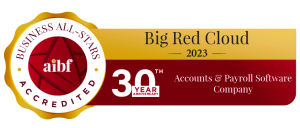When setting a budget for your small business it can be a struggle to know exactly how much to allocate to your marketing spend. One of the main reasons for this is that it can be hard to calculate the return on investment from marketing as often it isn’t always measurable, especially when it comes to branding. This makes it hard to decide whether the amount spent on marketing last year was too little or too much so we have created a list on how to avoid overspending on marketing.
- Don’t dive right in!
Often small business owners will think of marketing ideas without conducting sufficient research into their target customers. Without researching their target customers it will be hard to simply guess what type of advertising that customers will best respond to. Unfortunately many companies discover this themselves and it isn’t possible to recover the costs wasted on ineffective marketing campaigns. By investing time to conduct research your small business can avoid overspending on marketing.
- Avoid risky strategies
The devices, mediums and strategies that can be used to reach your target audience are constantly changing. Often they are released with the idea that they are the ‘next big thing’ in marketing but the majority of them are unproven. Large businesses that are well-established in the market have a bigger marketing budget. They have the resources available to take risks in their marketing strategies but it is not worth the risk for small businesses. Instead they should wait until the bigger players test the new concept to see if it is a success or a bad investment. This will result in them being able to avoid overspending on marketing
- Don’t expect immediate results
It is important to not get discouraged when you don’t see the results from marketing campaigns that you were initially anticipating. It can be hard to put a time frame on results from marketing campaigns as building an audience can take time. By having a well-established brand, message and audience you are more likely to see quick results but establishing all three of these takes time. To avoid overspending on marketing it is important to acknowledge the time it can take to see rewards so don’t just jump into a new marketing strategy.
- Budget
Budgeting can be extremely tricky when it comes to marketing due to the hard to measure return on investment. When presented with a budget, many marketers will spend every last cent of the budget. Zero-based budgeting is a method in which the budget is built around what is needed for the upcoming period. As opposed to methods like incremental budgeting where the previous period’s budget or actual performance is a basis with incremental amounts added for the new budget period. Some campaigns will require a little more money than others but if you have a bigger budget than you need, it can be easy to spend the remainder on things like Google AdWords. To avoid overspending on marketing your small business should consider zero-based budgeting.
By following this list to avoid overspending on marketing, you will be helping your business to grow as well as being able to benefit from good cash flow. Check out our handy guide to learn more on good cash flow management.





